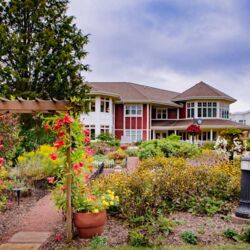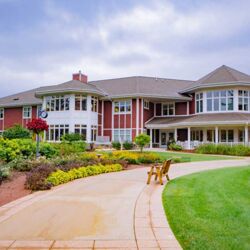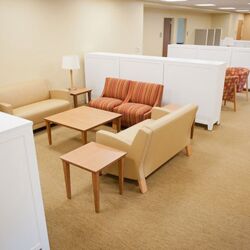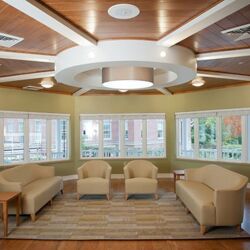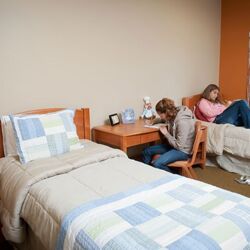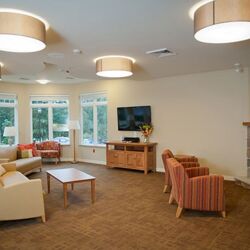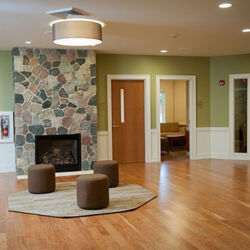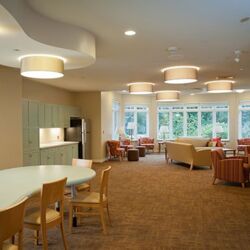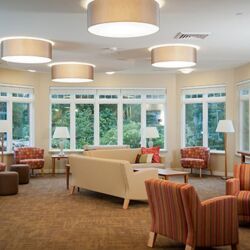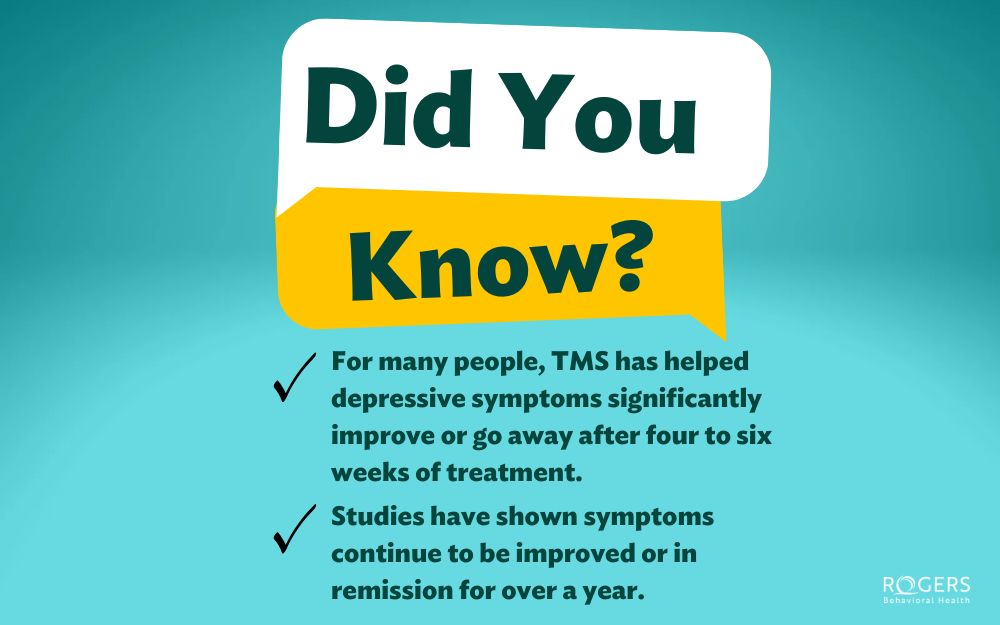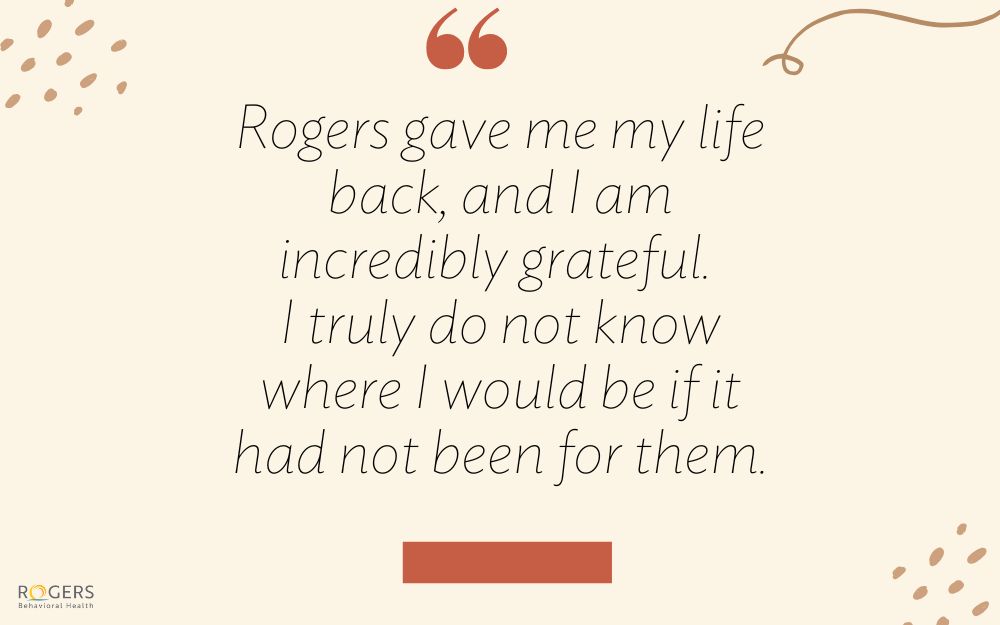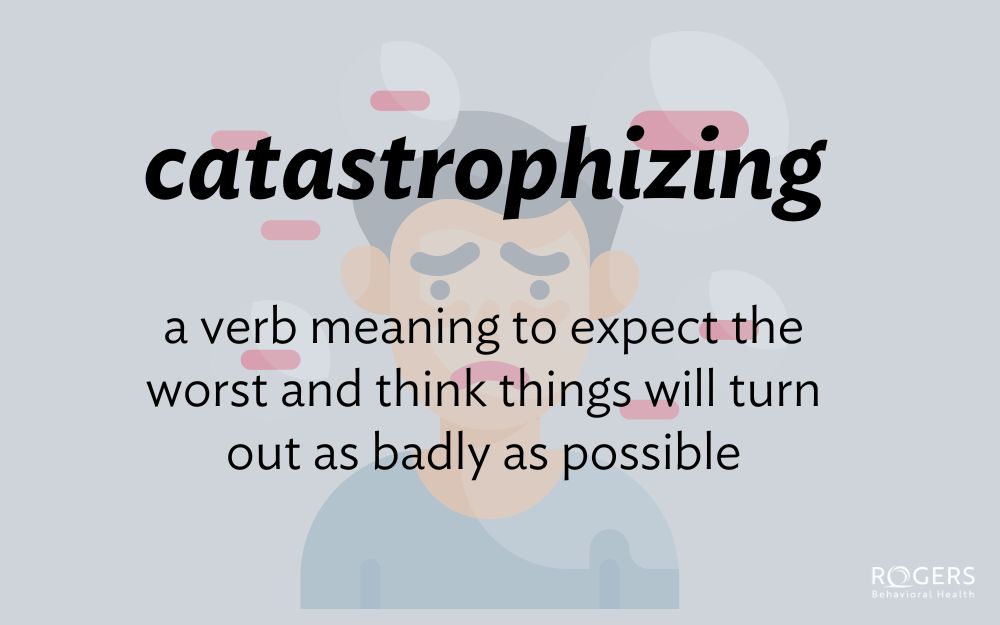
OCD and Anxiety Center Adolescent Residential Care
OCD & Anxiety in Teens
OCD Symptoms in Teens
If you are concerned that your teen may have OCD, it's important to seek treatment as early as possible. OCD symptoms include:
- Constantly checking over homework, issues of exactness, seeking reassurance excessively
- Obsessions with violence, unpleasant sexual images, and religious thoughts
- Constantly washing hands/body parts due to fear of germs/bacteria
- Consistently checking things - checking that the stove is off or the door is locked
For more information regarding OCD, see our OCD facts page. Take our OCD quiz to better understand if the signs you see in your teen may be OCD.
Signs of Anxiety in Teens
It is completely expected that your teen will experience some anxiety when reacting to stress, but it is important to distinguish the difference between typical teen stress responses and a possible anxiety disorder. These are some signs of an anxiety disorder in teens:
- Avoidance of academic and peer activities
- Seeking frequent reassurance from teachers - worrying about performing necessary tasks at school
- Difficulty transitioning between school and home
- Poor concentration
- Apprehension about going to work/practice for a sport
- Increased hopelessness or suicidal ideation
For more information regarding anxiety, see our anxiety facts page. Take our anxiety quiz to better understand if your teen's signs may be an anxiety disorder.
OCD & Anxiety Treatment for Teens - Residential care
If your teenager has OCD or anxiety and needs help, our OCD and Anxiety Center for adolescent residential care is one of the few residential facilities in the country with a long-held commitment to serving adolescents age 14-17 facing OCD and related anxiety disorders, including:
- Obsessive-compulsive disorder
- OC-spectrum disorders
- Generalized anxiety disorder
- Panic disorder and agoraphobia
- Trauma (posttraumatic stress disorder)
- Social anxiety disorder
- Tic disorders, hair pulling disorder, skin-picking disorder, Tourette syndrome
- Co-morbid anxiety disorder issues, such as:
- ADHD
- Depression
- Disordered eating
- Somatization disorders (conversion disorders)
We provide a unique blend of intensive psychiatric therapy with adventure-based experiences in both wilderness and urban settings. Our length of stay is typically less than three months.
A leading, board-certified child and adolescent psychiatrist recognized nationally for their expertise, directs our multidisciplinary team. We’ll develop a personalized treatment plan with a proven effective approach to help people move forward with their lives. Our outcomes show that our OCD and anxiety disorders treatment works.
"If I had never come here that would be very sad. I would be a very unhappy person. Rogers definitely saved my life in more ways than one."
-Former patient
Treatment approach
Our OCD and Anxiety Center for adolescent residential care is part of the comprehensive OCD and anxiety treatment offered by Rogers. As a system, Rogers provides care to more children, adolescents, and adults with OCD than any other behavioral health system. Residents call the OCD and Anxiety Center in Oconomowoc, Wisconsin, home for an average of 45 to 60 days in this intensive level of care.
Treatment components
Our core therapy is a mix of cognitive behavioral therapy (CBT) with an emphasis on exposure and response prevention (ERP). Through ERP, our team works to develop hierarchies for gradual, but increasing, exposure to what drives obsessions and compulsions. Studies continue to demonstrate the effectiveness of this approach, as do outcome studies conducted by Rogers.
In addition to individual, group, and family therapy sessions, experiential therapy plays a key role in treatment. This can include art, music, horticultural therapy, indoor exercise and challenges. And with our setting among the lakes and woods of southeastern Wisconsin, residents may find themselves on our ropes and challenge course, walking trails or, in the summer, using the kayaks and paddleboards on a nearby lake.
Other elements of therapy and treatment include:
- Medication management
- Family education
- Nutrition therapy and education
- Community outings and therapeutic passes
- Personal recovery plan for continuing care
Our family approach
At Rogers, we want our residents to better function at school and with friends and family. That makes family an important part of treatment and recovery.
We expect family members to be involved in a child’s treatment weekly. By attending family sessions and group education, parents become actively involved in helping teens build skills in communication and cooperation, and learn how the illness fits within the context of their family.
Family dynamics are explored during adventure-based experiences that our therapists lead in a safe and secure environment. Parents can also help their child practice behavior and management strategies during therapeutic visits.
Education services and advocacy
We know it’s important to maintain a teen’s schooling as much as possible. We offer education services, staffed by certified teachers with experience in working with students with behavioral, emotional, or cognitive issues. They will, with consent, work directly with the teen’s school and make recommendations to aid their return to school upon discharge.
Cognitive behavioral therapy (CBT): 3 hours daily + evening homework time
CBT is highly effective in helping patients make changes in their behaviors, thoughts, and emotions.
A component of CBT, ERP helps individuals gradually confront their fears and reduce their anxiety in a planned manner. Working through these “hierarchies” of addressing fears provides a thorough, creative approach for effective treatment.
Experiential therapy: 5-7 times per week
Includes horticultural, recreational, and art therapy to strengthen coping skills while learning to connect and express thoughts in many ways. From indoor rock walls and ropes courses to hiking trails and bike paths, Rogers offers the ability to engage in therapies outside of traditional group and individual treatment spaces.
Family therapy: 1 time per week
Consists of psychoeducation for families from various treatment team members, working with your child to reduce accommodations.
Meet with psychiatrist: 2 to 3 times per week
Meet with therapist individually: a minimum of 1 time a week + process group 5 times a week
Nutrition therapy: 1 time per week
Group session facilitated by a registered dietician implementing CBT exposure work
Pet therapy: 1 time per week
Spiritual care: offered as needed
Therapeutic passes and community outings: (throughout the week)
Allow patients to experience triggering real-life situations and process their challenges and progress with the treatment team and their families.
-
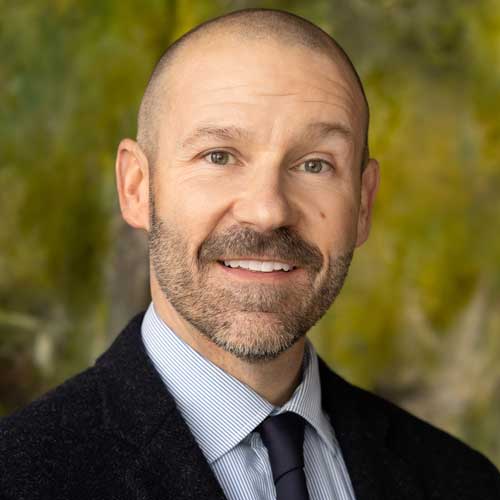
Andrew Butchart, DO
Medical Director, OCD and Anxiety Center Adolescent Residential Care, Psychiatrist
Andrew Butchart, DO, is board certified in general psychiatry and in child and adolescent psychiatry and is medical director, OCD and Anxiety Center Adolescent Residential Care.
A ...
Read More -
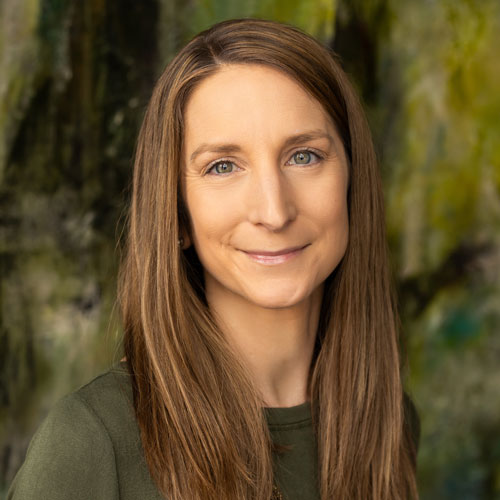
Amanda Heins, PsyD
Psychologist
Amanda Heins, PsyD, serves as the supervising psychologist for OCD and Anxiety Center Adolescent Residential Care in Oconomowoc, where she leads the clinical treatment team in providing ...
Read More -
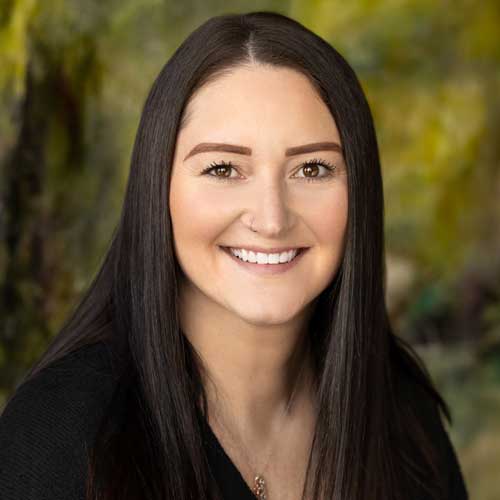
Jennifer Skemp, MSW, APSW
Manager of Operations, OCD and Anxiety Center, Child and Adolescent Residential Care
Jennifer Skemp, MSW, APSW, is manager of operations for child and adolescent residential care at the OCD and Anxiety Center in Oconomowoc.
Jen joined Rogers in 2012 as a therapist in ...
Read More -
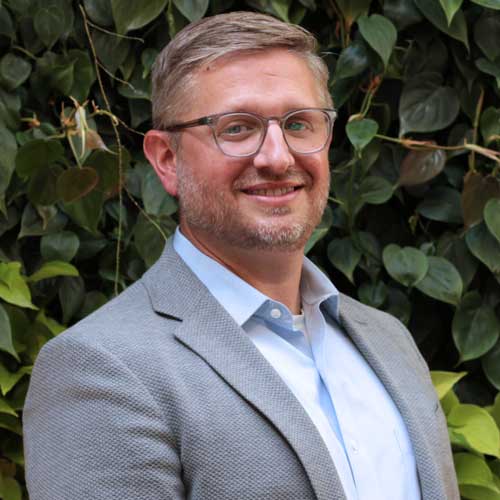
Christopher Takala, DO
Associate Medical Director, Oconomowoc Campus, Psychiatrist
Christopher Takala, DO, is a board-certified psychiatrist who serves as the associate medical director of Rogers' Oconomowoc campus. Previously, he served as the medical director of Rogers' Brown ...
Read More
The personal involvement of Rogers’ full-time, board-certified child and adolescent psychiatrists and clinical psychologists is one reason why the Rogers Adolescent Center for OCD and Anxiety is one of the nation’s best resources helping teens with OCD and related anxiety disorders get their lives back. But that dedication extends to all members of the team who will engage patients in gaining essential skills to address their unique, and often complex, needs.
At the Adolescent Center, our staff excels at providing a variety of experiences that teens can use to relate to their own issues. They then help each teen transfer this awareness and understanding into daily living skills such as communication, family interaction, personal achievement, and self-responsibility. Our staff is specifically trained for this age group and includes:
- Board-certified child and adolescent psychiatrists
- Licensed clinical psychologists
- Master’s level therapists
- Behavioral specialists
- Pediatric, family practice and internal medicine physicians
- Registered psychiatric nurses
- Registered dietitians
- Experiential therapists
- Certified teachers
- Child and adolescent trained counselors
In addition, patients have on-site access to experts who can consult for eating disorders, addiction, and other behavioral health concerns.
OCD and Anxiety Center Adolescent Residential Care setting and tour
Our adolescent residential care facility for OCD and anxiety features soothing décor, bright windows and welcoming community spaces combine with therapeutic spaces and comfortable, semi-private bedrooms.
Located on 50 acres of wooded property in southeastern Wisconsin, our outstanding on-site facilities and activities include an indoor gymnasium and art studio. Set between two lakes, teens have access to a ropes and challenge course, playing fields, hiking trails and year-round lake activities.
Our ideal location between Madison and Milwaukee offers off-site experiences in both urban and wilderness settings. Whether at Milwaukee’s lakefront, a museum, going on a camping trip, caving, or touring a university campus, residents actively use their living skills in a variety of environments.
CLICK ON THE IMAGES TO VIEW LARGER.
Concerned your teen is struggling and could benefit from residential treatment?
Contact us to request a free confidential screening and learn more.
Call 800-767-4411
Successful Clinical Outcomes
Data collected before and after treatment shows Rogers' treatment works. View more successful outcomes.
Child Yale-Brown Obsessive Compulsive Scale
Emily's Story
When Emily found herself in a tailspin of overwhelming highs and lows, her loved ones worked together to find her help at Rogers Behavioral Health. ... Read More

